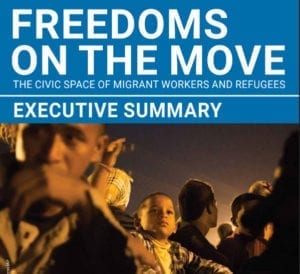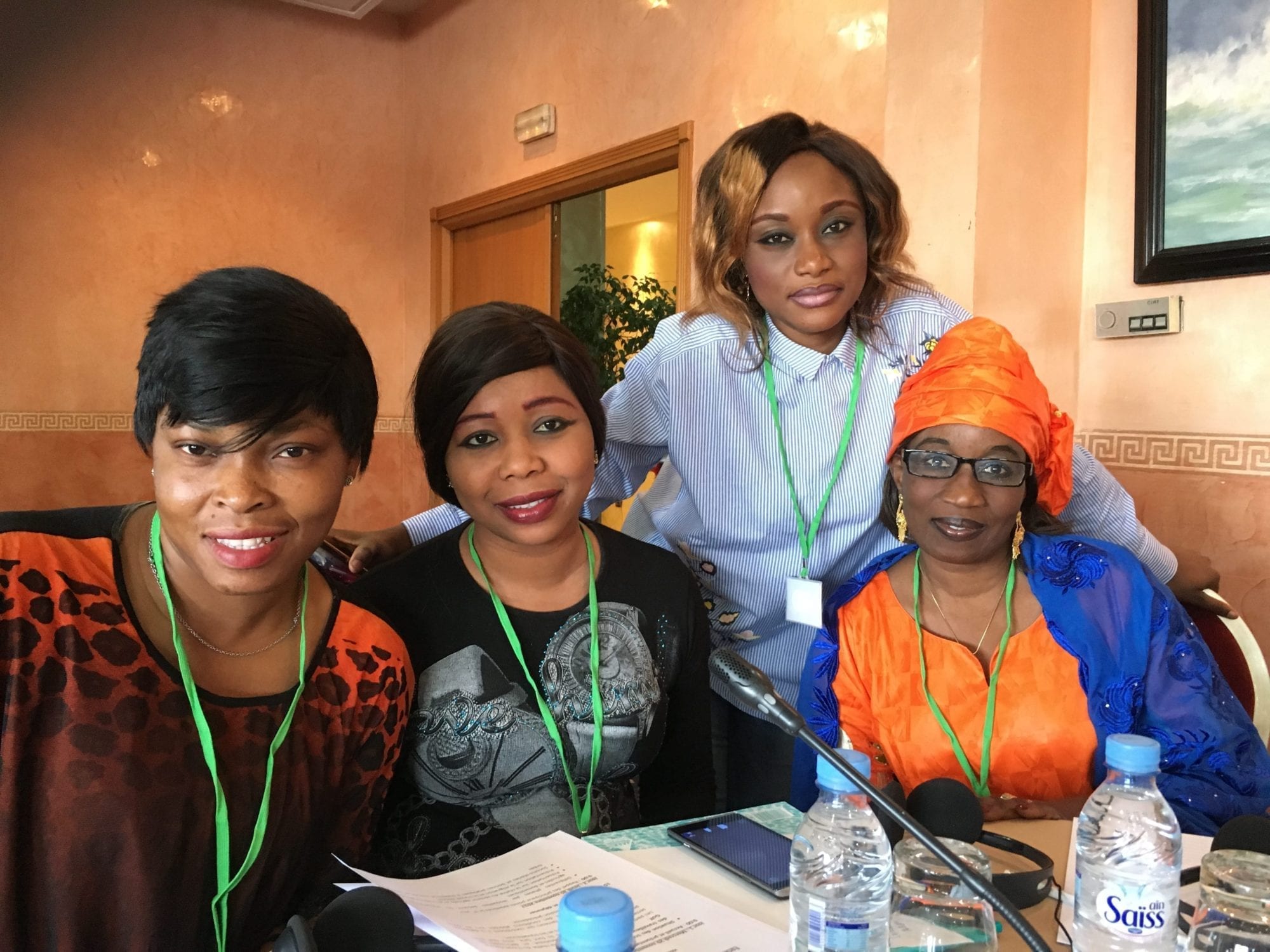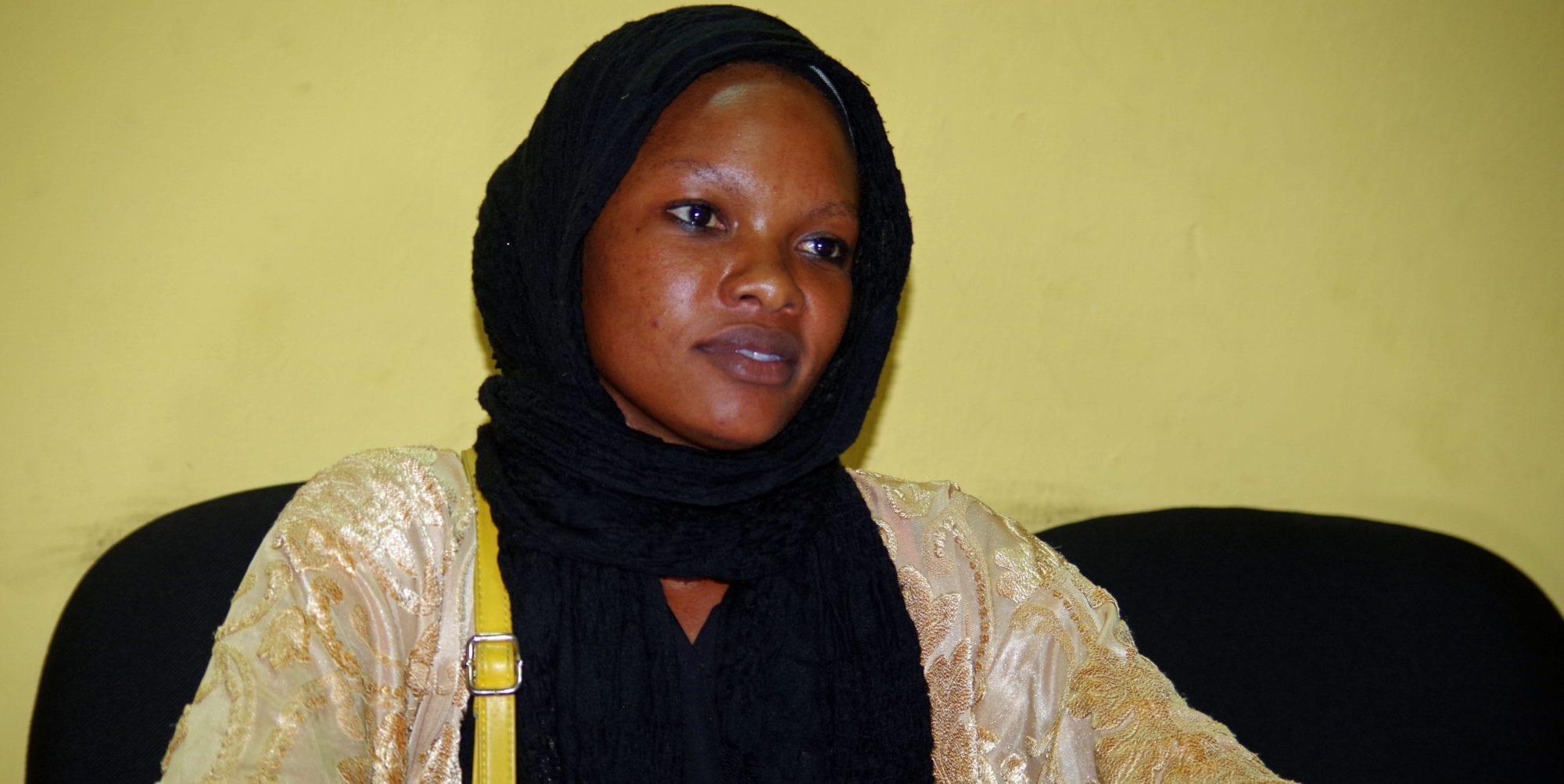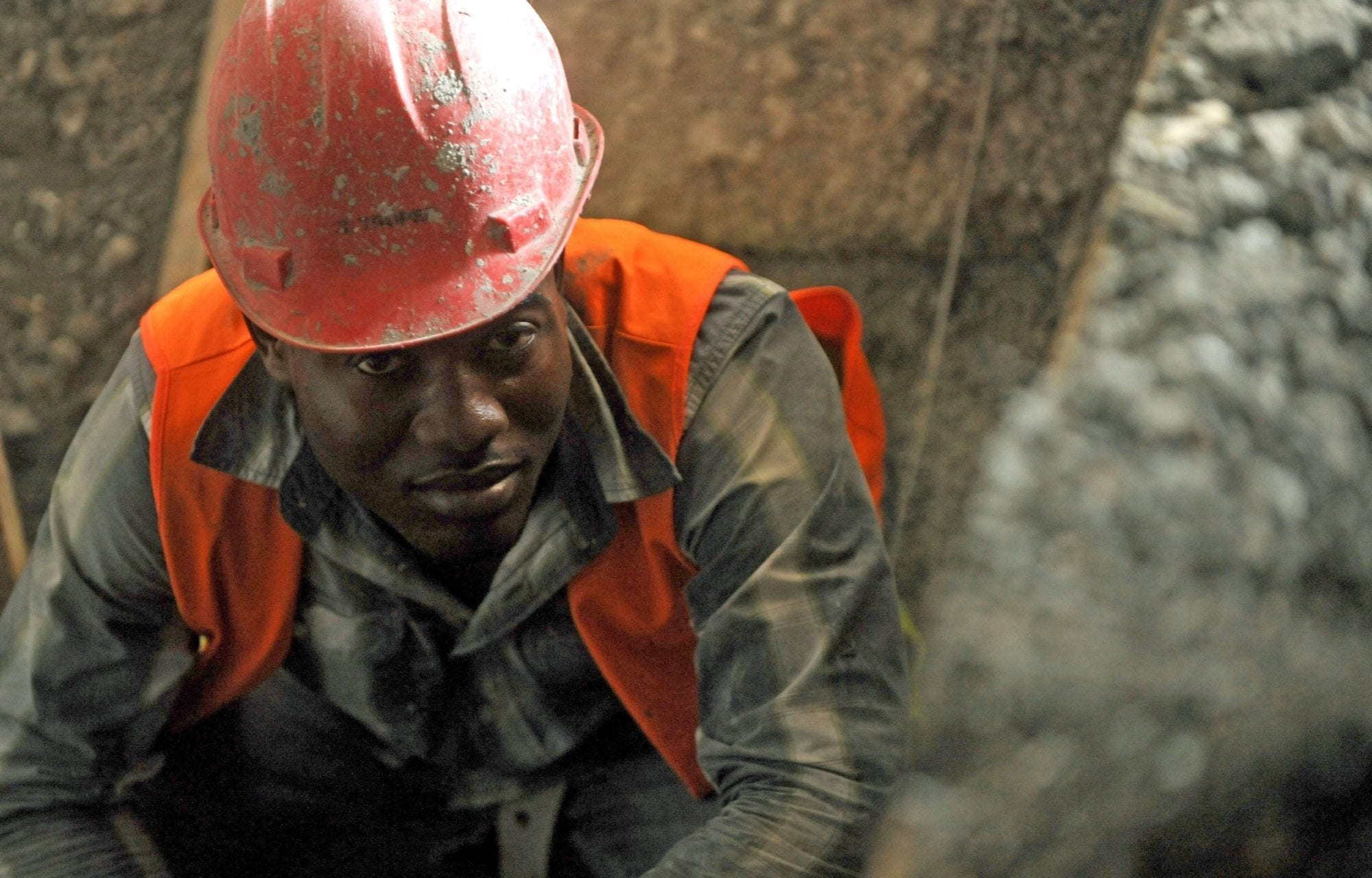To promote the rights of women workers, especially women domestic workers and women farm workers, it is essential to seek solutions to build women's capacity to defend their rights to equality, decent work and an end to violence and abuse, according to Hind Cherrouk,...
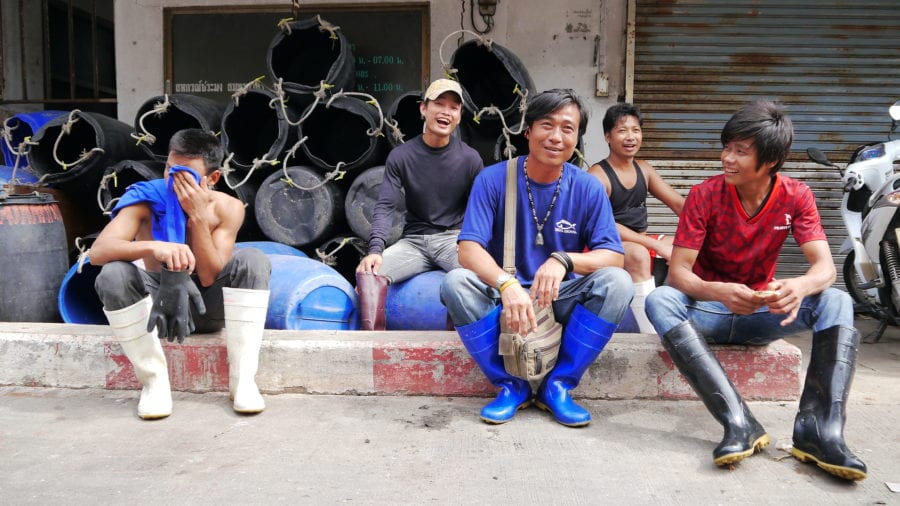
The Solidarity Center strives for rights for people on the move by ensuring migrant workers are fully able to exercise their workplace, social, economic and democratic rights. Solidarity Center/Jeanne Hallacy
Labor migration feeds the global economy. Hundreds of millions of migrant workers worldwide generate billions of dollars in global remittances. They are domestic workers, construction and agricultural workers, factory and service workers, teachers and professionals. Migrant workers often travel long distances due to a lack of decent work at home to support their families and build a better life. They frequently are denied the most basic human rights. For instance, most destination countries deny migrant workers the right to form unions, and explicitly exclude them from labor law protections, and women migrant workers are often subject to gender-based violence and harassment in their workplaces.
The Solidarity Center strives for worker rights for people on the move by ensuring migrant worker rights are a key part of the labor movement. We cultivate an understanding of how exploitative labor migration management schemes are a widespread means by which to undercut worker wages, create precarious work and pit workers against each other. And, in addressing these structural ills, we emphasize a response that understands the intersectionalities and identities that make migrant workers especially vulnerable. Our goal is to ensure that migrant workers are fully able to exercise their workplace rights, as well as their social, economic and democratic rights.
We also focus on the creation of decent work in home countries so workers can migrate by choice and not due to economic coercion. We recognize that migration is not caused by a single factor that “pushes” workers to migrate. In doing so, we bring our unique worker rights voice more broadly by emphasizing that everyone deserves dignity at work regardless of status—climate migrants, economic migrants and conflict refugees. We work to achieve this through programs that focus on union organizing and collective bargaining, policy advocacy, access to justice, safe migration and, more broadly, the ability to exercise fundamental freedoms as democratic participants.
Find out more
- A Pandemic Reset for Migrant Workers, Neha Misra and Shannon Lederer
- How COVID-19 Affects Women in Migration, Carolina Gottardo and Paola Cyment
Freedoms on the Move, a 2019 report by Solidarity Center and CIVICUS, is an urgent call to action for unions and other civil society groups to include migrant workers and refugees in advancing civic rights.
Kenya Union: Ban on Labor Recruiting Agencies Should Stay
The Central Organization of Trade Unions–Kenya (COTU-K) said the country’s recent decision to lift its ban on workers migrating to Qatar and Saudi Arabia for jobs is “ill advised,” and urges the government to keep the ban in place until the Ministry of Labor provides...
Book Launch: Informal Workers and Collective Action
As the number of workers in the informal economy increase around the world, the result is that more and more workers are low paid, with few or no social benefits or job security. In the Dominican Republic, where many in the informal economy are Haitian migrants, the...
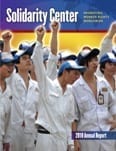
Solidarity Center 2010 Annual Report
Download here.
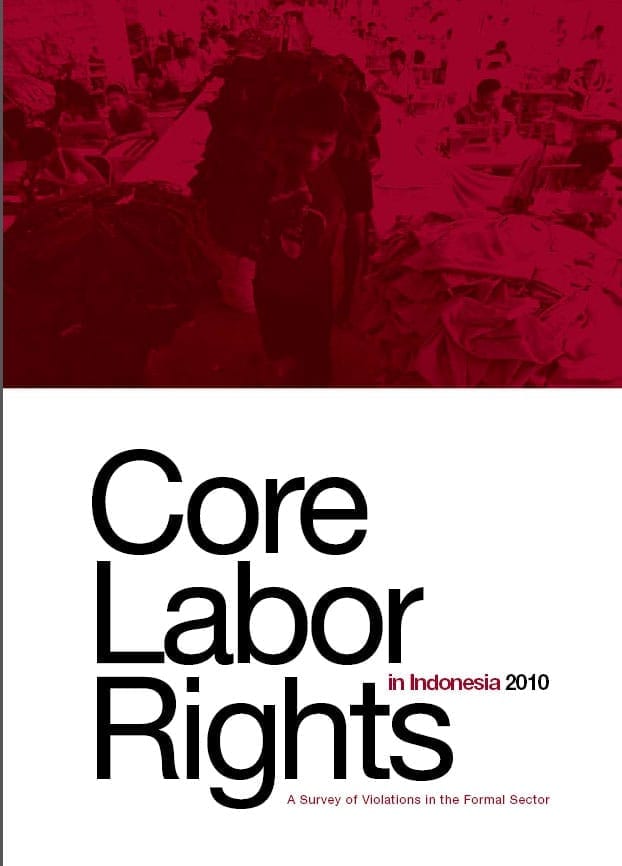
Core Labor Rights in Indonesia: A Survey of Violations in the Formal Sector (2010)
This survey of labor rights in Indonesia finds that although improvements have been made since the fall of the Suharto government, serious violations persist, including: discrimination against women in the workplace; anti-union discrimination by employers;...
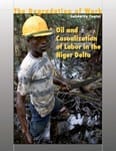
Degradation of Work: Oil and Casualization of Labor in the Niger Delta (2010)
This report explores how the degradation of work in the oil-rich Niger Delta jeopardizes the livelihoods and well-being of workers and their families and results in fewer opportunities for Nigerians to improve working and living conditions, especially in local...
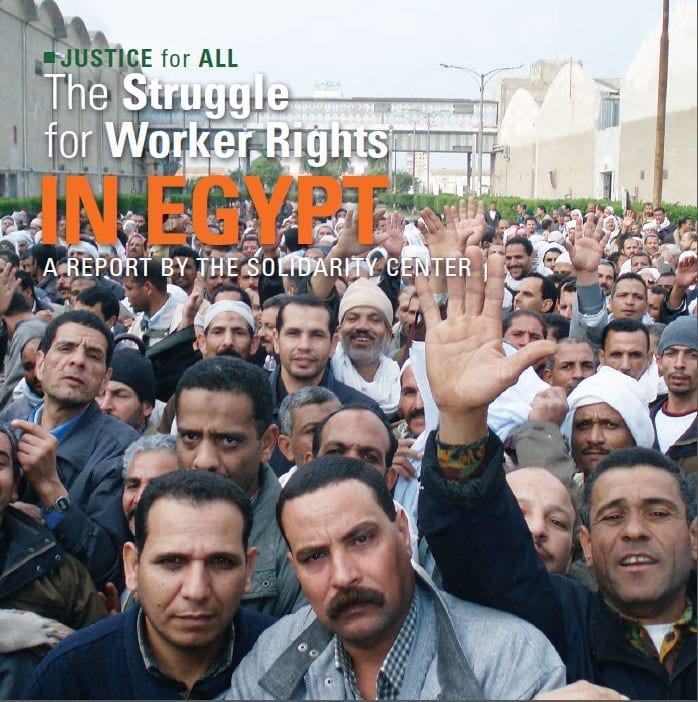
The Struggle for Worker Rights in Egypt (2010)
The situation for workers in Egypt in 2010 sadly bears all too much similarity to that conflict between Egyptian workers and their government so many centuries ago. Today’s Egyptian government maintains an iron grip on power, harshly punishes dissent and plays a...

Out of Sight, Out of Mind (2009)
This 2009 Solidarity Center study focuses on migrant men who have worked on Thai fishing boats out of the port of Mahachai in Samut Sakhon province, examining recruitment practices, working conditions and payment practices to assess the patterns and prevalence of...
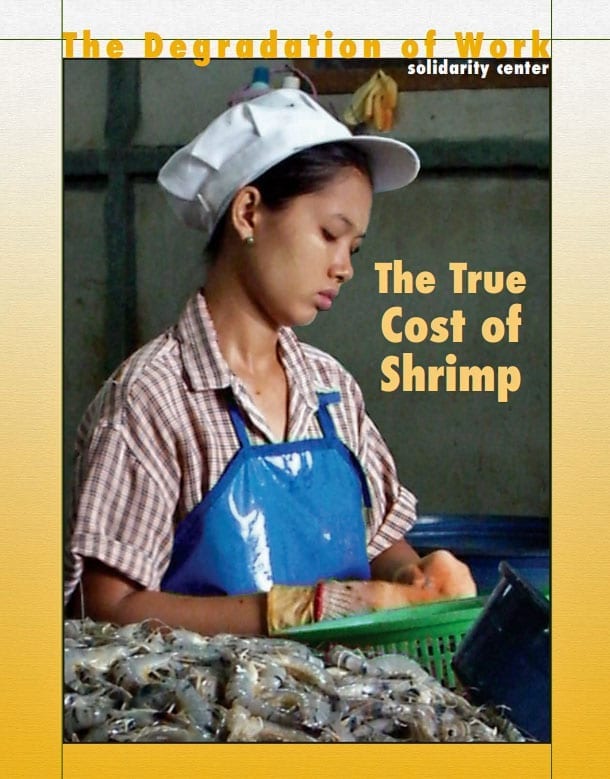
The True Cost of Shrimp (2008)
In little more than 30 years, the shrimp industry has been revolutionized through an unprecedented increase in efficient production, resulting in tremendous profitability for producers. But the “shrimp boom” is sustained through a staggering, largely hidden, cost to...

